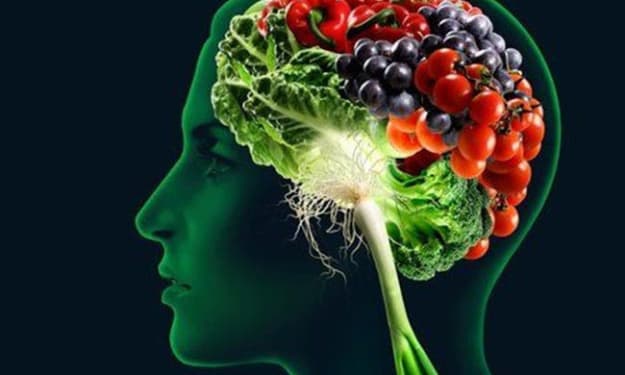A Beginner's Guide to Plant-Based Eating: Go Green for Better Health
Are you still craving anything not plant-based after reading this?

Plant-based eating has gained significant popularity in recent years, and for good reason. This dietary approach emphasizes whole, minimally processed foods derived from plants, such as fruits, vegetables, legumes, grains, nuts, and seeds. By adopting a plant-based lifestyle, individuals can experience a wide range of health benefits, including improved heart health, weight management, and increased vitality. In this article, we will provide a beginner's guide to plant-based eating, offering practical tips and real-life examples to help you embrace this nourishing and sustainable way of living.
Understanding Plant-Based Eating: Plant-based eating is centered around consuming predominantly plant-derived foods while minimizing or eliminating animal products. This dietary approach focuses on whole, unrefined foods that are rich in fiber, vitamins, minerals, and antioxidants. Plant-based meals emphasize the diversity and abundance of plant foods, offering a wide range of flavors, textures, and nutrients. Whether you choose to adopt a vegan, vegetarian, or flexitarian approach, plant-based eating can be customized to suit your preferences and lifestyle.
Real-Life Example: Emma, a young professional, struggled with weight management and low energy levels. Determined to make a change, she decided to embrace plant-based eating. By incorporating more fruits, vegetables, and whole grains into her diet, Emma experienced a significant transformation. She lost weight, felt more energized throughout the day, and noticed improvements in her overall well-being. Emma's story illustrates the power of plant-based eating to positively impact health and quality of life.
Emphasizing Whole Foods: At the core of plant-based eating is the consumption of whole foods in their unprocessed or minimally processed state. Whole foods retain their natural nutritional composition, offering a wide array of vitamins, minerals, and beneficial compounds. Incorporate a variety of colorful fruits and vegetables, whole grains, legumes, nuts, and seeds into your meals. These foods provide essential nutrients and promote satiety, making plant-based eating a nourishing and satisfying choice.
Real-Life Example: Mark, a self-proclaimed food lover, was hesitant to try plant-based eating, fearing it would be bland and lacking in flavor. However, he embarked on a culinary adventure, exploring the vibrant world of plant-based cuisine. Mark discovered a vast array of herbs, spices, and seasoning blends that brought his plant-based dishes to life. From aromatic curries to zesty salads, his taste buds were delighted. Mark's experience shows that plant-based eating can be both nutritious and incredibly flavorful.
Balancing Nutritional Needs: One common concern about plant-based eating is meeting nutritional needs, particularly for essential nutrients like protein, iron, calcium, and vitamin B12. However, with thoughtful meal planning, it is entirely possible to achieve a well-balanced plant-based diet. Incorporate a variety of protein-rich plant foods such as legumes, tofu, tempeh, and quinoa. Ensure an adequate intake of iron through leafy greens, fortified cereals, and legumes. Consider sources of calcium like fortified plant-based milks and leafy greens. For vitamin B12, which is primarily found in animal products, a supplement may be necessary.
Real-Life Example: Sarah, an athlete, was concerned about meeting her nutritional needs on a plant-based diet. With guidance from a registered dietitian, she focused on nutrient-dense plant foods to support her active lifestyle. Sarah incorporated lentils, chia seeds, and leafy greens for iron, tofu and edamame for protein, and fortified plant-based milk for calcium. She also took a vitamin B12 supplement to ensure adequate intake. Sarah's example demonstrates that with careful planning, a plant-based diet can provide all the necessary nutrients for optimal health.
Sustainability and Environmental Considerations: Plant-based eating not only benefits individual health but also contributes to sustainability and environmental conservation. Animal agriculture is a significant contributor to greenhouse gas emissions, deforestation, and water pollution. By choosing plant-based options, individuals can reduce their ecological footprint and support a more sustainable food system. Plant-based eating aligns with principles of ethical consumption, promoting the well-being of both humans and the planet.
Embarking on a plant-based eating journey can be a transformative experience for your health, the environment, and animal welfare. By embracing whole, plant-derived foods and exploring a diverse range of flavors and culinary techniques, you can nourish your body and enjoy a sustainable way of living. Remember to prioritize nutrient balance, seek professional guidance if needed, and celebrate the positive impact your choices make on your well-being and the world around you.





Comments
There are no comments for this story
Be the first to respond and start the conversation.